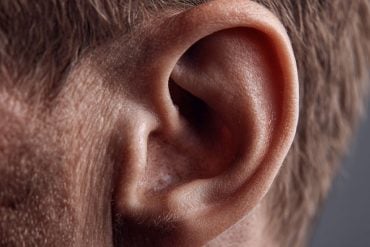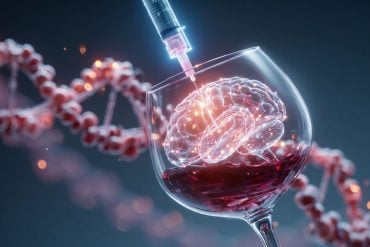Summary: Researchers found that negating adjectives with “not” affects how our brains interpret their meaning, mitigating rather than inverting their definition. In lab-based experiments, participants took longer to process phrases like “not bad” compared to “good” or “bad.”
Brain imaging showed initial interpretations of negated adjectives were similar to their affirmative counterparts but weakened. These findings help us understand how the brain processes negation and other complex linguistic operations.
Key Facts:
- Negated adjectives are processed more slowly and with more varied interpretations.
- Initial brain activity for negated adjectives is similar to affirmative ones but weaker.
- Understanding negation in the brain can illuminate other linguistic processes.
Source: PLOS
Negating an adjective by placing ‘not’ in front of it affects the way our brains interpret its meaning, mitigating but not entirely inverting our interpretation of its definition.
In a study published May 23rd in the open-access journal PLOS Biology, Arianna Zuanazzi at New York University, US, and colleagues offer insight into how the brain represents changes of meaning over time and offer new methods for further linguistic research.

The way the brain processes negated adjectives — ‘not bad’ or ‘not good’ — is not understood. Previous studies suggest that negated phrases are processed more slowly and with more errors than their affirmative counterparts.
Cutting-edge artificial neural networks appear to be largely insensitive to the contextual impacts of negation, leading many researchers to wonder how negation operates.
In lab-based experiments, 78 participants were asked to read affirmative or negated adjective phrases, good/bad, not good/not bad, happy/sad, not happy/not sad etc. on a screen and rate their meaning on a scale of one (really really bad/really really sad) to ten (really really good/really really happy).
Answers took longer for negated adjectives and interpreted meaning was more varied. Cursor tracking showed that people are slower to interpret them, first understanding them to be affirmative before modifying towards their opposite meaning.
In a second experiment, participants rated affirmative or negated phrases on a scale. Meanwhile, magnetic fields generated by the electrical activity of their brains were captured by magnetoencephalography (MEG). Zuanazzi and colleagues again saw slower reaction times for negated adjectives.
The brain activity shows that initial interpretations and early neural representations of negated adjectives are similar to that of affirmative adjectives, but are weakened, backing up the previous suggestion of a mitigated effect.
The analysis contributes to the debate as to how negation operates. The ability to characterize the subtle changes of linguistic meaning through negation in the brain using imaging methods could help to tease apart understanding of other linguistic processes beyond the sum of the processing of individual word meanings.
The authors add, “The study of negation offers a compelling linguistic framework to understand how the human brain builds meaning through combinatoric processes.
“Our time-resolved behavioral and neurophysiological data show that, in a sentence like ‘your coffee is not hot’, negation (‘not’) mitigates rather than inverts the representations of a scalar adjective (‘hot’). In other words, negation reduces the temperature of your coffee, though it does not make it cold.”
About this language and neuroscience research news
Author: Claire Turner
Source: PLOS
Contact: Claire Turner – PLOS
Image: The image is credited to Neuroscience News
Original Research: Open access.
“Negation mitigates rather than inverts the neural representations of adjectives” by Arianna Zuanazzi et al. PLOS Biology
Abstract
Negation mitigates rather than inverts the neural representations of adjectives
Combinatoric linguistic operations underpin human language processes, but how meaning is composed and refined in the mind of the reader is not well understood. We address this puzzle by exploiting the ubiquitous function of negation.
We track the online effects of negation (“not”) and intensifiers (“really”) on the representation of scalar adjectives (e.g., “good”) in parametrically designed behavioral and neurophysiological (MEG) experiments.
The behavioral data show that participants first interpret negated adjectives as affirmative and later modify their interpretation towards, but never exactly as, the opposite meaning.
Decoding analyses of neural activity further reveal significant above chance decoding accuracy for negated adjectives within 600 ms from adjective onset, suggesting that negation does not invert the representation of adjectives (i.e., “not bad” represented as “good”); furthermore, decoding accuracy for negated adjectives is found to be significantly lower than that for affirmative adjectives.
Overall, these results suggest that negation mitigates rather than inverts the neural representations of adjectives. This putative suppression mechanism of negation is supported by increased synchronization of beta-band neural activity in sensorimotor areas.
The analysis of negation provides a steppingstone to understand how the human brain represents changes of meaning over time.







